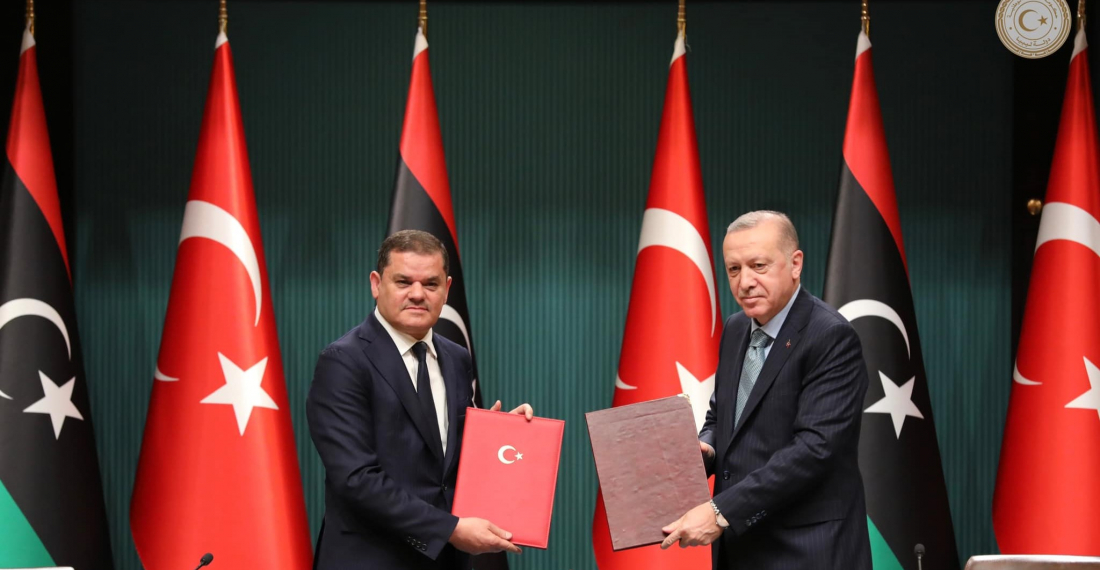A high-level delegation led by the Libyan prime minister, Abdul Hamid Dbeibah, visited Turkey on Monday (12 April) to participate in the joint high-level Strategic Cooperation Council. The two sides signed several new Memoranda of Understanding (MoUs) and renewed a commitment to the 2019 maritime boundaries agreement between the two countries.
Turkish President, Recep Tayyip Erdogan, reiterated his support for the sovereignty of Libya's government over the country.
"From now on, our priority is for Libya's government of national unity to prevail throughout the country," Erdogan said at a press conference with Dbeibah.
The MoUs signed include the establishment of three powerplants in Libya, infrastructural projects and co-operation in the media field.
Dbeibah said that Libya seeks to reach an ideal level of relationships with Turkey including in energy co-operation with Turkey.
"Libya will host many reconstruction projects, we want to implement them by Turkish companies, and we want to strengthen energy co-operation."
Most of Libya's new government efforts are focused on addressing economic needs and scaling up the reconstruction efforts. Dbeibah has already promised to bring back Arab and international investments to Libya.







